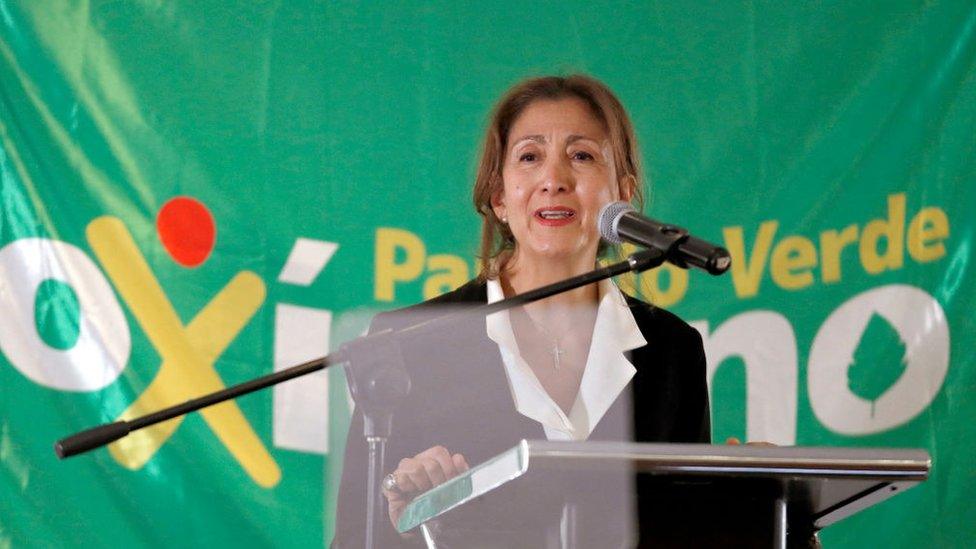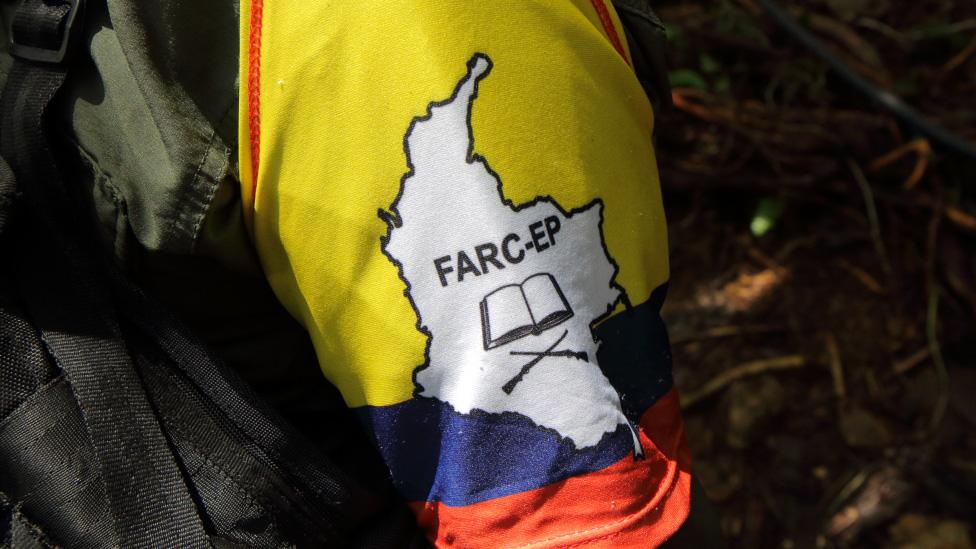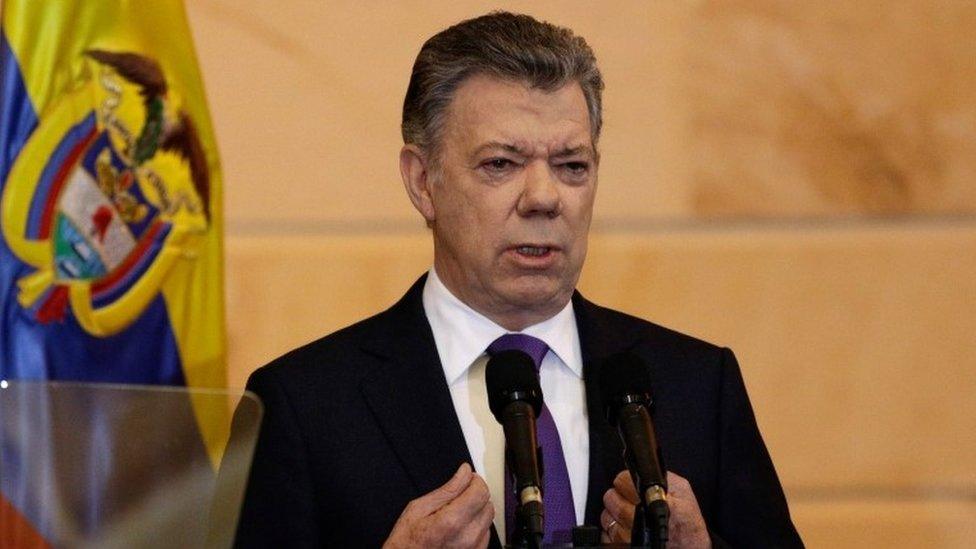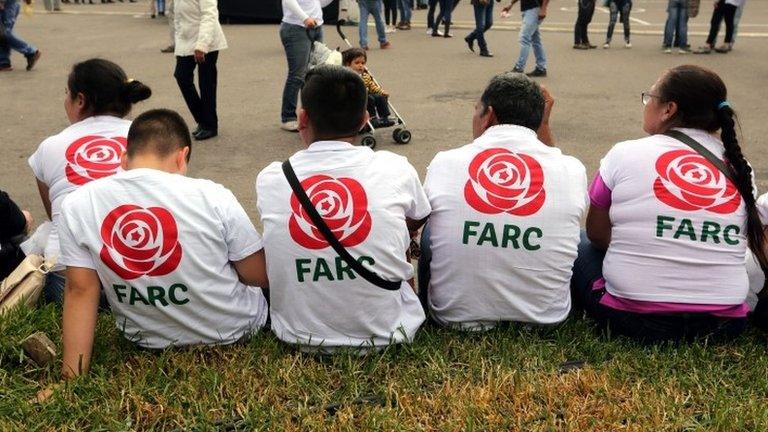Ingrid Betancourt: Former Farc captive announces presidential bid
- Published

Ingrid Betancourt faces a tough primary battle in less than two months if she is to revive her political career
The former Colombian senator, Ingrid Betancourt, has announced she will run for president again, 20 years after being kidnapped by left-wing rebels.
Ms Betancourt was campaigning in the 2002 presidential election when she was abducted by Farc rebels and held hostage for over six years.
She has pledged to tackle corruption and poverty if she wins May's poll.
"Today I am here to finish what I started," she told supporters in the country's capital city of Bogotá.
"I am here to claim the rights of 51 million Colombians who are not finding justice, because we live in a system designed to reward criminals," she said.
The Farc rebels were a Marxist group that waged a bitter war against the Colombian government for over 50 years, before eventually calling a ceasefire in 2016.
The centrist Ms Betancourt is entering a packed field in the election, with more than 20 candidates already declared.
Gustavo Petro, the leftist former mayor of Bogotá and a one-time member of the revolutionary guerrilla group M-19, is currently leading in opinion polls.
Many Colombians see him as an alternative to the current right-of-centre president, Ivan Duque, who is prevented from seeking re-election by term limits and who has seen his popularity plummet in recent polls.
Despite her fame internationally, Ms Betancourt has maintained a low profile since her rescue in 2008 by Colombian military forces and faces a tough primary battle to win the nomination of the centrist coalition that includes her party, Green Oxygen.
With primary votes just two months away, she is expected to pitch herself as a reconciliation candidate in a country where more than nine million people are registered with the government, external as conflict victims.
Ms Betancourt was travelling to a campaign event in the city of San Vicente del Caguán on 23 February 2002 when she was stopped at a roadblock and taken hostage by the FARC.
During her six years of captivity in the Colombian jungle she was treated brutally by her captors, before Colombian army spies inside the Farc rebels orchestrated her rescue in July 2008.
She has spent much of the intervening time living abroad in France with her family.
Farc rebels fought a vicious civil war with the government for more than 50 years, killing more than 200,000 people.
The group signed a peace deal with the government in 2016 and subsequently entered parliament, but some splinter groups remain at war with the central government.
Ingrid Betancourt spoke to the BBC in 2013 about her years of captivity
- Published24 November 2016

- Published21 July 2018

- Published10 March 2018
